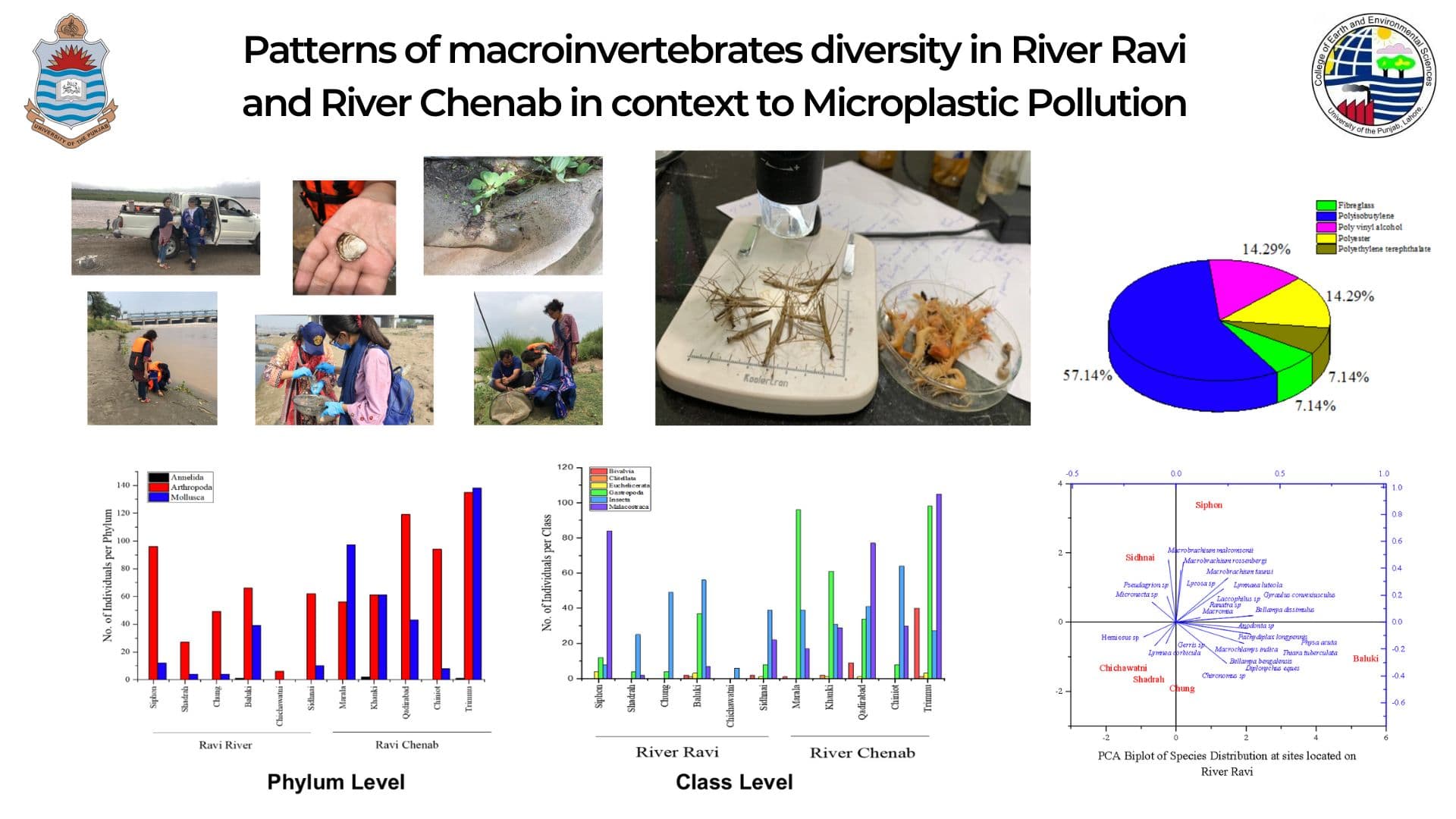
Patterns of macroinvertebrates diversity in River Ravi and River Chenab in context to Microplastics Pollution
MPs are a great threat to the ecosystems. Small sized pieces are often mistaken as food particles and ingested by crustaceans and become part of bodily tissues. Macroinvertebrates, especially omnivores and are equipped to digest a variety of diet, preying on fish, small crustaceans and dead organic matter are more likely to ingest MP debris that are hard and similar to their food choices. This area of study is quite important as our drinking water suitability relies on it and so does the life of aquatic fauna. Certain species are able to sustain the stressor, while some are sensitive resulting is less species diversity.




